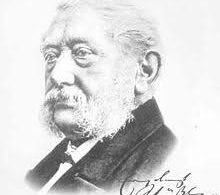History of SARS: Deadliest Pneumonia
An unidentified form of killer pneumonia, originally suspected to be a variant of influenza, was reported from various parts of the world. The world health organization was gearing up to face the challenge over the past decade, a number of viral disease, both vector –borne and zoonotic, have emerged in south east Asia and the western pacific region. While vector borne diseases primarily infect human beings although they are transmitted by other organizations, zoonotic diseases occur primarily in the lower animals but some times infect human beings too. The locus of the current outbreak of killer pneumonia, an atypical or unusual form of the disease that progresses rapidly to cause severe respiratory distress and consequent death, also, seems to lie in this region.
The disease has spread across continents in a matter of days, and evidence seems to suggest that the infection was transmitted world wide chiefly from the Hong Kong , special administrative region of China. It reached there possibly from southern main land China and was transmitted to various parts of the world, through international air travel via Hong Kong , a major traffic hub. However, unlike the earlier epidemic out breaks in the region, this particular disease is virulent and the spread of infection is rapid. The aetiology or the cause has not been identified definitely yet a diagnostic test is determining a treatment regimen. Preliminary investigations seem to indicate that the pathogen may be a new virus.
The first case of the disease, which has been called severe Acute respiratory syndrome (SARS) by the world health organization (WHO) was reported in Hanoi, Vietnam in February and within a month hundreds of people have been infected. As of march 386, people across 13 countries were suspected to have been infected and 11 of them had died. No cases of SARS have been reported worldwide since 2004.
While the affected areas included the Canadian city of Toronto, China’s Guang dong province, the Hong Kong special administrative region, Taiwan, Singapore and Hanoi, Hong Kong accounted for the largest number of cases (222). Cases had been reported in Ireland, Italy, Slovenia, Spain, Switzerland, The United Kingdom and The United States, but they have been reported in Australia – in New South Wales and Western Australia – too but the WHO figures do not reflect these. This syndrome SARS said Gro Harlen Brundt, Director – general of the now a worldwide health threat the rapidity with which infection is spreading.
The chief symptoms of SARS include the rapid onset of flu-like high fever above 38 degrees (100.4 degrees F) coupled with one or more symptoms of respiratory illness, including cough, shortness of breath, difficulty in breathing or hypoxia.
On chest X-ray CXR was present, the key tool to distinguish suspected and probable cases. The incubation period was short, estimated to range from two to seven days with a period of three to five days being more common. The person should have either had close contact with a person suspected of suffering from SARS or should have traveled to an area reporting cases of SARS with in 10 days of the onset of symptoms. Some patients responded to treatment but other remained critically ill. Broad-spectrum antibiotics have not proved to be effective in halting the progression of the disease but the intravenous administration of antiviral drugs such as Riberirian seems to have some effect.
The first reported case was of a person who fell ill shortly after arriving in Hanoi from Sanghai and Hong –Kong. After he was admitted, several members of the hospital staff developed similar symptoms. The person died on March 13, after being transferred to Hong-Kong. Almost all the cases reported in Vietnam have had to do with direct contact with the hospital where the first case of H. influenza is part of the normal orpharyngeal flora. Pili facilitated adherence to the respiratory mucosal surface. Organisms pass between epithelial cells to cause disease.
The capsular polysaccharide is an antiphagocytic barrier while endotoxin can damage mucosal cells and cause CNS inflammation and the sepsis syndrome.The strains cause disease by damaging the respiratory epithelial cell surface.
Haemophilus influenzae
Haemophilus influenzae causes community acquired pneumonia, especially in elderly causing community acquired pneumonia, especially in elderly adults with chronic lung disease or prolonged tobacco use and patients with HIV infection over 80% or isolates are non typable.
H.Influenzae is a declining cause of meningitis in children and a rare cause in adults.
Obstetrical infections were severe with maternal transmission of the organism, premature birth and high infant mortality. Epiglottis in adults may feature fever, sore throat, respiratory distress and hoarseness or drooling.
DIAGNOSIS
It was isolated from 80-90% of culture of blood in pneumonia and epiglottis. Counter immuno celectrophoresis detects antigen in blood and urine.
Epidemiology
M.catarrhalis colonizes the upper airway of 50% of healthy school children and 7%of adult’s infections peak in late winter/early spring.
SYMPTOMS / SIGNS
It causes otitis media , bronchitis , pneumonia and rarely empyema , bacteremia , septic arthritis , meningitis and endocarditis , respiratory infection occur in patients over 50 years of age with chronic pulmonary disease .
Case 1
When the patient was seen there were symptoms of respiratory distress and a need for hospitalization.This was a clear clinical stage where a prompt relief was to be provided to check irreversible physiological changes. A patient of 80 years with few symptoms, clinical signs , the prescription was to be made only on them (not on her constitutional or previous life information) to save her life.
DIAGNOSIS
Grams staining of sputum reveals gram-negative diplococci
TREATMENT
She was put on Senega 200 -3 times a day , cough better – expectorated lots mucopurulent , sputum , fever 99 oF.
Senega 200 t,d,s for 7 days , recovered completely
Senega
A medicine for catarrh symptoms of respiratory tract with rattling and soreness in chest, difficulty raising of tough profuse mucus in the aged.
I have clinically verified this remedy many a times, a drug of choice for bronchitis.
Pneumonia and ARDS
With winter come viral infections. Children and old people are the most victims, rapid onset and weak immune system often leads to respiratory distress and necessitating hospitalization. If recognized and treated with indicated clinical remedies, often prevents hospitalization.
Viral pneumonia
Homoeopathic medicines: Aconite, Ferrum phos, Lycopodiu , Brom, Phos, Sanguinaria , Senega , Verat-v
Infants
Ant-ars , Ipecac
Case 2
Baby J. 11 months presented with high fever, cough, vomiting, wheezing, hurried respiration, alae –nasi , restlessness , fever , flushed face. O/E chest: bilateral basal crepitus and mild rohonchi
Treatment: Child was put on Ant Ars 3x 4 times a day from 3-4-2006 for 4 days on 7-4-2006, no fever , cough better. Chest – few rhonchi – able to drink , passed stool.
Treatment: Ant-Ars 3x Q.I.D for another 3 days. Child is better now.
Choice of remedy: A clinical remedy perfectly described to be used for catarrhal pneumonia associated with influenza. (Boericke M.M ) excessive , cough and mucous secretion < eating and lying down and other remedy cuts short the total illness and relieves completely.





